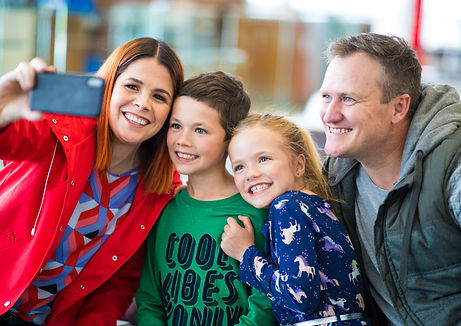.png)
Thank you to the 1,400 leaders who’ve generously done the 7 questions!
I hope reading
7 Questions with Phillip Boyle
helps you in your leadership.
Cheers,
Jonno White
7 Questions with Phillip Boyle
Name: Phillip Boyle
Current title: General Manager Marketing
Current organisation: SeaLink Travel Group
I have 25 years experience in marketing, communications, public relations, stakeholder engagement, and public policy in both private and public sectors in Australia and the United Kingdom.
I’ve worked across many industries including tourism, transport, insurance and finance, education, health and WHS, NFP, federal, state and local government sectors.
My motto is to always look at the bigger picture while staying agile to adapt and change to the current opportunities and challenges. I believe that quality personal relationships and mutual benefits are integral to achieving the greatest success.

.
1. What have you found most challenging as a CEO or executive of a large enterprise?
As a senior executive of a large national company, leading our organisation through the global pandemic has been the most challenging period of my career. Especially when parts of our business have seen minimal impact while other parts much more severely impacted. Maintaining morale and optimism over this sustained period of disruption has challenged every leader.
2. How did you become a CEO or executive of a large enterprise? Can you please briefly tell the story?
While I have always been part of a marketing discipline I have had quite a varied career across multiple industries both public and private, large and small, in Australia and overseas. I have jumped at opportunities that have come my way as I have always enjoyed a new challenge. I believe this breadth of experience has helped me develop a wide range of leadership skill sets in various industries that has demonstrated my agility, adaptability and transferable skills. I have not been afraid to take on something new as it has meant I have learnt a new skill.
3. How do you structure your work days from waking up to going to sleep?
Before I go to bed I create lists and appointments in my diary for the following day of things I need to achieve. This allows me to fall asleep knowing I’ve planned my day in advance.
I exercise at a functional training gym at 5am in the morning so I start the day with physical exercise before any work disruptions. As I work in crisis communications and media, I review any adverse media from the night before or identify opportunities.
From 7am - 8am I make my children breakfast and school lunches. This is a great time for me to be present and chat with my kids.
I arrive at work before 9am. I check in with my team, and then about crossing off my list from the night before. I often get disrupted with urgent matters that require my attention. I tend to respond to my team’s questions straight away so I don’t hold them up and they can get on with the task at hand. I try to minimise meetings as I find they tend to be time wasters.
I leave work at about 6.30pm. A couple of times a week I call my parents on my drive home to make sure I stay in touch with them as they live about 1000km away.
I have dinner with my family, help do school homework, then enjoy putting my kids to bed. Always kiss and cuddle them before sleep. Then usually jump on my computer, answer some emails and do my next day to do list.
4. What's the most recent significant leadership lesson you've learned?
The best piece of advice I have received as a leader was “you can only control how you react to a situation not the situation itself”. Stay calm and level headed as you will usually find a way to resolve any problem or issue you face.
5. What's one book that has had a profound impact on your leadership so far? Can you please briefly tell the story of how that book impacted your leadership?
Simon Sinek’s Start With Why. I recommend this book to any leader as it gets to the core of your reason for being (personally and professionally). It helps you to find and define what is really important to you, how it is important, and why it is important.
6. How do you build leadership capacity in a large enterprise?
Not all people are genuinely interested in the responsibility of being a leader. And that is ok as you don’t want everyone trying to lead - “too many cooks in the kitchen”. Identify the people who are genuinely interested and have demonstrated some leadership qualities. Slowly build up their responsibility sphere while supporting them in their journey. Don’t tell them how to do it. Let them find their best way but always be in hand to lend hand or an ear. Focus them in the outcome they want to achieve first - visualise what success would look like in a task. Then plan the way to get there.
7. What is one meaningful story that comes to mind from your time as a CEO or executive of a large enterprise so far?
I was once told by a leader of mine to Don’t try to be the person in the room that always has the answer. Listen. Observe. Enquire. Invite. Involve. Then solve. I remember being told to ask yourself “what would success look like?” Start any problem solving with that question.